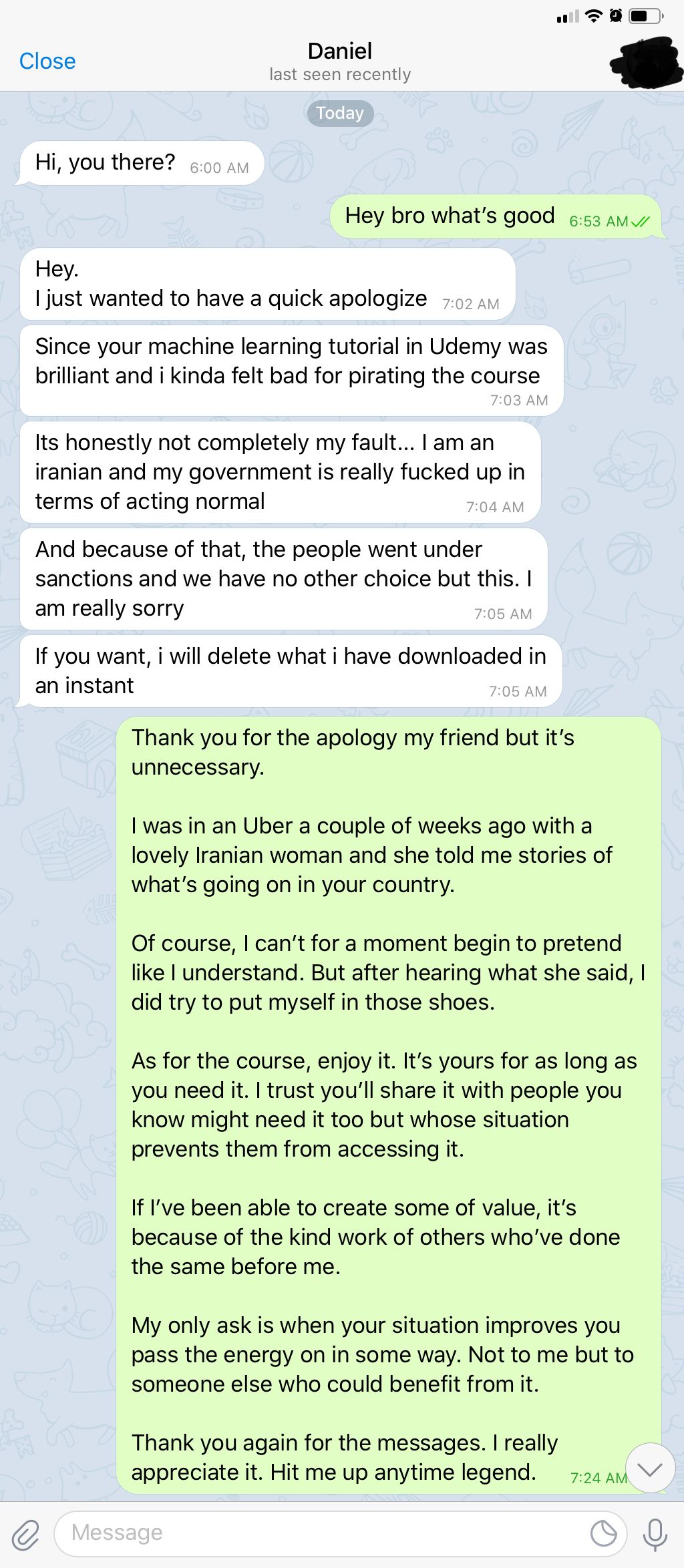In today's digital age, pirated course has become a widespread issue that affects both creators and learners. With the rise of online learning platforms, it's easier than ever to access valuable educational content. However, the availability of pirated versions of these courses raises significant concerns about intellectual property, ethics, and the quality of education. This article will explore the implications of pirated courses and provide actionable insights to help you make informed decisions.
Pirated course platforms may seem appealing due to their affordability or even free access to premium content. But what are the hidden costs? In this article, we'll uncover the risks, ethical dilemmas, and potential consequences of engaging with pirated educational material. Whether you're a student, educator, or professional, understanding this issue is crucial for maintaining integrity in the learning process.
By the end of this article, you'll have a comprehensive understanding of the dangers of pirated courses and how to avoid them. We'll also discuss the importance of supporting legitimate creators and platforms, ensuring that quality education remains accessible and ethical for everyone.
Read also:Everything You Need To Know About Fans Types Uses And Benefits
What Are Pirated Courses?
Pirated courses refer to unauthorized reproductions of online learning materials, including videos, assignments, quizzes, and other educational resources. These courses are often distributed without the consent of the original creators, violating copyright laws and ethical standards. While they may appear to offer a cost-effective solution for learners, the implications go far beyond monetary considerations.
How Do Pirated Courses Work?
- Pirated course distributors typically obtain content through hacking or unauthorized downloads.
- They then repackage and distribute the material via torrent websites, private groups, or dedicated platforms.
- Many learners are unaware of the legal and ethical implications of using such resources.
Why Are Pirated Courses a Concern?
The growing prevalence of pirated courses raises several concerns, including legal, ethical, and educational implications. Below, we explore the primary reasons why pirated courses should be avoided:
Legal Implications of Using Pirated Courses
Downloading or distributing pirated courses is a violation of copyright laws. In many countries, this act is punishable by fines or even imprisonment. Educators and learners alike must be aware of the legal consequences of engaging with pirated content.
Impact on Course Creators
Pirated courses directly impact the livelihood of creators who invest significant time, effort, and resources into developing high-quality educational content. By downloading pirated versions, learners undermine the hard work of these professionals and contribute to a culture of intellectual theft.
Loss of Income for Educators
Creators rely on course sales to sustain their businesses and continue producing valuable content. When learners opt for pirated versions, they deprive creators of the financial support needed to maintain and improve their courses.
The Ethical Dilemma of Using Pirated Courses
Using pirated courses raises important ethical questions. Is it fair to benefit from someone else's work without compensating them? How does this behavior affect the broader educational ecosystem? These are critical considerations for anyone contemplating the use of pirated content.
Read also:How To Access Ssh Iot Remotely On Android For Free A Comprehensive Guide
How Pirated Courses Undermine Trust
Trust is a fundamental component of any educational relationship. By engaging with pirated courses, learners risk damaging their credibility and reputation. This behavior can also perpetuate a cycle of dishonesty and unethical practices in the learning community.
Risks of Using Pirated Courses
While pirated courses may seem like an attractive option, they come with significant risks that learners should be aware of:
Security Threats
- Pirated course files often contain malware or viruses that can compromise your device and personal data.
- Downloading from untrusted sources increases the risk of identity theft and financial fraud.
Quality Concerns
Pirated courses may lack the original quality, including missing or corrupted files, outdated content, and incomplete materials. This can hinder your learning experience and prevent you from achieving your educational goals.
Alternatives to Pirated Courses
Fortunately, there are legitimate and affordable alternatives to pirated courses that provide high-quality educational content without compromising ethics or legality:
Free and Low-Cost Learning Platforms
- Platforms like Coursera, edX, and Khan Academy offer free or low-cost courses from reputable institutions.
- Many creators also provide free trials or sample lessons to give learners a taste of their content.
How to Support Legitimate Creators
By choosing to support legitimate creators, you contribute to a healthier and more sustainable educational ecosystem. Below are some ways to show your support:
Invest in Quality Education
- Purchase courses directly from authorized platforms to ensure creators receive fair compensation for their work.
- Leave positive reviews and recommendations to help others discover valuable content.
Statistics on Pirated Courses
According to recent studies, the global market for pirated educational content is estimated to be worth billions of dollars annually. For example:
- A 2022 report by the International Federation of the Phonographic Industry (IFPI) found that 38% of internet users access pirated content regularly.
- Another study by the World Intellectual Property Organization (WIPO) revealed that pirated courses account for 15% of all online learning downloads.
These statistics underscore the need for greater awareness and action to combat the issue of pirated courses.
How to Identify Pirated Course Platforms
Recognizing the signs of pirated course platforms is essential for avoiding potential risks. Below are some common indicators:
Red Flags to Watch For
- Platforms that offer premium courses for free or at significantly reduced prices.
- Websites with poor design, spelling errors, or lack of contact information.
- Sites that require users to download third-party software to access content.
Conclusion
Pirated courses pose significant legal, ethical, and educational risks that learners should carefully consider. By supporting legitimate creators and platforms, you contribute to a more sustainable and ethical educational ecosystem. Remember, the value of education extends beyond cost—investing in quality content ensures that you receive the best possible learning experience.
We encourage you to take action by sharing this article with others and promoting the importance of ethical learning practices. Together, we can create a culture of integrity and respect for intellectual property in the digital age. For more insights on online learning and educational trends, explore our other articles and resources.
Table of Contents
- What Are Pirated Courses?
- Why Are Pirated Courses a Concern?
- Impact on Course Creators
- The Ethical Dilemma of Using Pirated Courses
- Risks of Using Pirated Courses
- Alternatives to Pirated Courses
- How to Support Legitimate Creators
- Statistics on Pirated Courses
- How to Identify Pirated Course Platforms
- Conclusion

